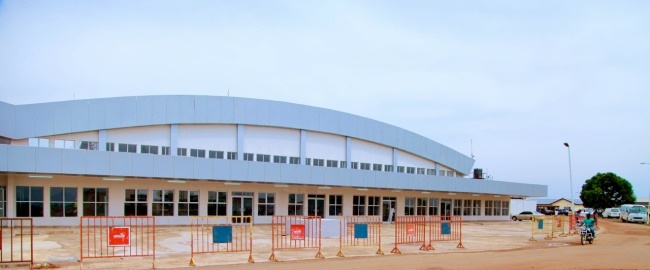By Tony Yayo
The number of passengers at the Lungi International Airport has reduced owing to the outbreak of the Corona Virus.
The disclosure was made by a senior official of the Ministry of Health and Sanitation (MoHS), Madam Christiana Fortune during a training session of the Sierra Leone Airport Authority (SLAA) staff.
The training capacitates SLAA staff to tackle the Corona Virus epidemic otherwise known as Covid-19 should it break out in Sierra Leone.
“Covid-19 has already negatively affected business at the Airport Authority,” Madam Fortune said.
In response to a review programme and advice, by International Civil Aviation Organisation (ICAO), SLAA had been working with MoHS to screen all passengers using the airport.
“The screening of all international passengers for Covid-19 is going on as a precautionary measure to prevent the virus breaking out in Sierra Leone,” The MoHS official said.
She also said the new reviews and programmes started with the annexation of nine border crossing formalities.
“Freetown International Airport and its facilitation agencies must recognise the urgent need of implementing public health programmes in their daily different operations,” Madam Fortune urged.
“The Airport Committee meetings provide weekly updates to improve the collaboration with the Ministry of Health,” she emphasised. The joint report and feedback, Madam Fortune went on, identified challenges for prompt action.
“The meetings also led to the adoption of daily guidelines such as: screening, hand washing, quarantine data, training programmes, among others, to the Airport community,” she said.
“As provisions of Annex 9–Facilitation are broken down into agencies’ standard operating procedures (SOP), roles are clarified and conflict zones removed for a more coordinated approach to the Airports facilitation standards,” she explained.
Similarly, Madam Fortune said, Civil Aviation and SLAA staff had been trained by ICAO’s Collaborative Arrangement for the Prevention and Management of Public Health Events in Civil Aviation (CAPSCA) during Public health emergencies in the Mono River Basin.
Two officials, Mallay Betty Braima and Kumba Margaret Berber have received public health trainings in Mauritania and Bangladesh respectively.
She added that similar trainings were ongoing in several border communities and several airport employee work zones simultaneously in the country.
Lungi Airport Empty


